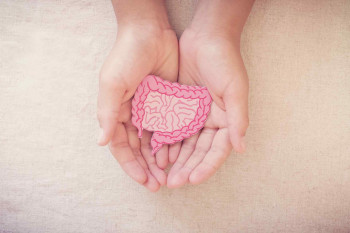Restless Leg Syndrome: An Overview
Restless Leg Syndrome (RLS) is a neurological disorder characterized by an irresistible urge to move the legs. People with RLS may experience discomfort or a crawling sensation in the legs, particularly when sitting or lying down, which is relieved by movement.
RLS can occur at any age, but it is more common in older adults and affects more women than men. The exact cause of RLS is unknown, but it may be related to genetic factors, iron deficiency, or certain medications.
Signs You’re Not Getting Enough Sleep
Sufficient sleep is essential for maintaining physical and mental health. Many people, however, have trouble sleeping for the recommended seven to nine hours each night. Insufficient sleep can manifest in seven different ways:
- Fatigue:
Fatigue is a feeling of tiredness and exhaustion that can make it difficult to stay alert and focused throughout the day. When you don't get enough restorative sleep, your body doesn't have enough time to repair and restore itself, leading to feelings of fatigue. This can affect your ability to perform everyday tasks, and can also increase your risk of accidents and injuries.
- Irritability:
Lack of sleep can affect your mood and emotional regulation, making you more easily irritable, anxious, or depressed. This is because sleep helps regulate the production of neurotransmitters that affect mood, such as serotonin and dopamine. When you don't get enough sleep, these neurotransmitters can become imbalanced, leading to mood disturbances.
- Difficulty concentrating:
Sleep plays a crucial role in cognitive function, including concentration, memory, and decision-making. When you don't get enough sleep, your brain may have trouble processing and organizing information, leading to difficulties with concentration and memory. This can affect your ability to perform tasks at work or school, and can also increase your risk of accidents or mistakes.
- Increased appetite:
Sleep deprivation can disrupt the hormones that regulate appetite, including leptin and ghrelin. Leptin signals to the brain that you're full, while ghrelin signals hunger. When you don't get enough sleep, your body produces more ghrelin and less leptin, leading to increased cravings for high-calorie, high-fat foods. This can contribute to weight gain and other health problems.
- Decreased immune function:
Sleep is essential for immune system function, including the production of cytokines that help fight infection and inflammation. When you don't get enough sleep, your immune system may not function as effectively, making you more susceptible to illness and infection.
- Memory problems:
Sleep plays a critical role in consolidating memories, including both short-term and long-term memories. When you don't get enough sleep, your brain may have trouble processing and storing new information, leading to difficulties with memory. This can affect your ability to learn new things and can also contribute to cognitive decline over time.
- Slow reaction time:
Lack of sleep can slow your reaction time and impair your ability to make quick decisions. This can be particularly dangerous in certain situations, such as driving or operating heavy machinery. When you don't get enough sleep, your brain may have trouble processing information quickly and efficiently, leading to slower reaction times and decreased cognitive function.
How to Improve Sleep Quality
If you're experiencing symptoms of RLS or insufficient sleep, there are several things you can do to improve your sleep quality:
- Stick to a regular sleep schedule:
Going to bed and waking up at the same time every day can help regulate your body's internal clock and improve your sleep quality.
It's important to stick to this schedule even on weekends, as staying up late and sleeping in can disrupt your sleep cycle and make it harder to fall asleep at night.
- Create a relaxing bedtime routine:
Creating a relaxing bedtime routine can help signal to your body that it's time to wind down and prepare for sleep. This could include taking a warm bath, reading a book, practicing relaxation techniques like meditation or deep breathing, or listening to calming music.
- Make your bedroom a sleep-friendly environment:
Creating a sleep-friendly environment can help promote better sleep. This could include keeping your bedroom cool, dark, and quiet, investing in a comfortable mattress and pillows, and minimizing distractions like electronic devices or bright lights.
- Caffeine, alcohol, and nicotine:
Caffeine, alcohol, and nicotine can all interfere with sleep quality. Caffeine is a stimulant that can keep you awake, while alcohol and nicotine can disrupt the sleep cycle and make it harder to achieve deep, restorative sleep. It's best to avoid these substances, particularly in the evening.
- Exercise regularly:
Regular exercise can help improve sleep quality by reducing stress and anxiety, promoting relaxation, and increasing the production of sleep-promoting hormones. However, it's important to avoid vigorous exercise close to bedtime, as this can increase alertness and make it harder to fall asleep.
- Talk to your doctor:
If you're experiencing symptoms of RLS or persistent sleep problems, it's important to talk to your doctor. They may recommend medication or other treatments to help improve your sleep.
For RLS, treatment may include medications to increase iron levels or regulate dopamine levels in the brain, as well as lifestyle changes like exercise or avoiding certain medications that can worsen symptoms. For sleep problems, treatment may include cognitive-behavioral therapy, relaxation techniques, or medication.
By incorporating these tips into your daily routine, you can improve your sleep quality and reduce the symptoms of RLS and insufficient sleep.
It's important to be patient and consistent, as it may take time to see results. If you continue to struggle with sleep problems, don't hesitate to seek help from a healthcare professional.
Conclusion
In conclusion, getting enough sleep is crucial for both physical and mental health. Restless Leg Syndrome (RLS) is a common sleep disorder that can affect the quality and duration of sleep, leading to a range of negative health consequences.
Additionally, there are several signs that you may not be getting enough sleep, including fatigue, irritability, difficulty concentrating, increased appetite, decreased immune function, memory problems, and a slow reaction time.
It's important to prioritize good sleep habits, such as sticking to a regular sleep schedule, creating a comfortable sleep environment, and avoiding caffeine and electronics before bedtime. If you're experiencing symptoms of RLS or other sleep disorders, it's important to talk to a healthcare professional for a diagnosis and treatment options.
By making sleep a priority and taking steps to improve sleep quality, you can reduce the risk of negative health consequences and improve your overall well-being. Getting enough restorative sleep can help you feel more energized, improve your mood and cognitive function, and support optimal physical health.
FAQs
- What is Restless Leg Syndrome (RLS)?
The involuntary need to move one's legs is a hallmark symptom of Restless Leg Syndrome, a neurological disorder often accompanied by unpleasant feelings in the legs, such as tingling, burning, or aching.
- What causes RLS and how is it diagnosed?
The exact cause of RLS is not fully understood, but it is thought to involve an imbalance in dopamine levels in the brain. It can be diagnosed through a clinical evaluation and by meeting specific criteria established by medical organizations.
- What are the common signs and symptoms of RLS?
The common signs and symptoms of RLS include an irresistible urge to move the legs, uncomfortable sensations in the legs such as tingling, burning, or aching, and difficulty sleeping.
- Can RLS be treated or managed with medication?
Yes, RLS can be treated or managed with medications such as dopamine agonists, iron supplements, and anticonvulsants.
- How does RLS affect sleep quality and duration?
RLS can significantly impact sleep quality and duration as the symptoms often become worse in the evening or at night, leading to difficulty falling or staying asleep.
- Are there any lifestyle changes or habits that can help improve symptoms of RLS?
Yes, there are several lifestyle changes or habits that can help improve symptoms of RLS, including regular exercise, avoiding caffeine and alcohol, establishing a regular sleep schedule, and practicing relaxation techniques.
- Can RLS affect children or is it only a disorder of older adults?
RLS can affect children and adults of all ages, although it is more common in older adults.
- Is RLS linked to other health conditions, such as cardiovascular disease or neurological disorders?
Yes, RLS has been linked to other health conditions, such as cardiovascular disease, neurological disorders, and depression.
- Are there any known risk factors for developing RLS?
Some known risk factors for developing RLS include a family history of the condition, pregnancy, and certain chronic medical conditions such as kidney disease or diabetes.
- Can RLS be prevented or avoided altogether?
While RLS cannot be prevented or avoided altogether, making certain lifestyle changes and managing underlying medical conditions can help reduce the risk and severity of symptoms.

























